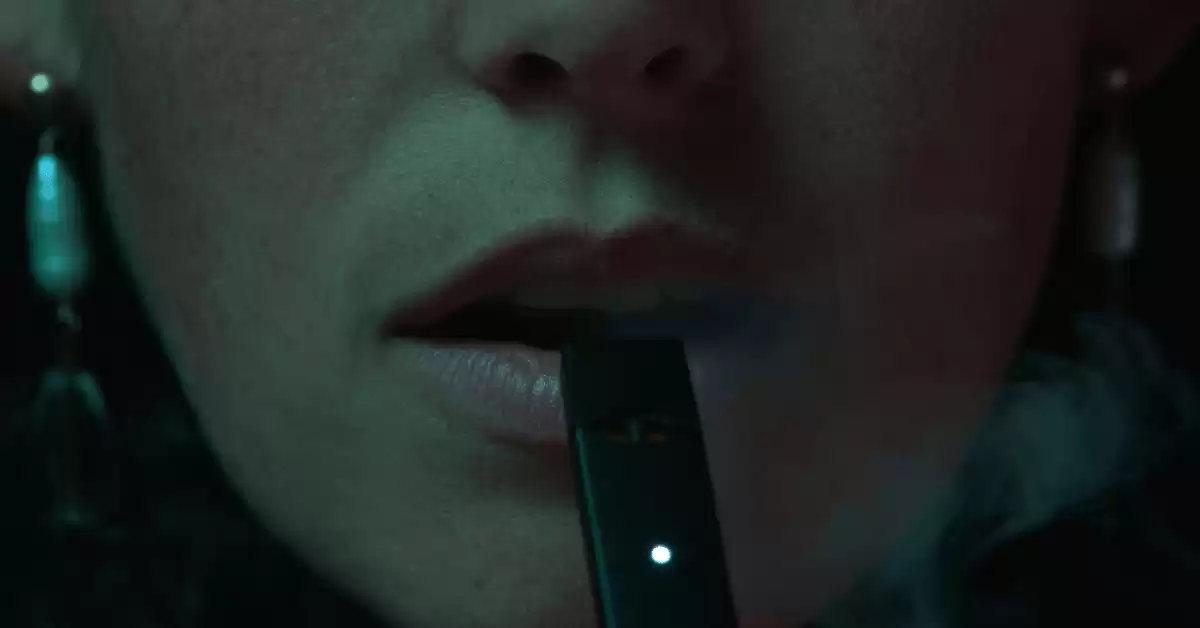The Story Behind Netflix's Juul Docuseries Big Vape
The adaptation of the book "Big Vape: The Incendiary Rise of Juul" into a Netflix series explores the unintended consequences of Big Tech.
Adaptations have always been a part of Hollywood, but lately, they have been the talk of the town. From books to toys to video games, every form of intellectual property is being reimagined. And there are good reasons why studios are drawn to these adaptations. Not only do they come with built-in audiences, but they also offer the opportunity to add depth and complexity to the original material.
Recently, my book "Big Vape: The Incendiary Rise of Juul" was adapted into a Netflix series called "Big Vape: The Rise and Fall of Juul." As a consulting producer on the series, I had the chance to see my reporting come to life and gain new perspectives on the complex story of Juul Labs, the vaping company that aimed to replace cigarettes but ended up addicting countless teenagers to nicotine.
Before the series premiered, I had the opportunity to speak with R.J. Cutler, the director of "Big Vape," who is known for his documentaries like "The September Issue" and "Billie Eilish: The World's a Little Blurry." We discussed the process of adapting nonfiction, the differences between documentary filmmaking and journalism, and the challenge of capturing nuance on screen.
Cutler was initially drawn to the story of Juul because it offered a chance to explore the unintended consequences of Big Tech. Two design students at Stanford created an e-cigarette with the intention of helping smokers quit, but instead, they sparked an epidemic of teen vaping.
When it comes to adapting nonfiction material, Cutler found that basing the series on a book provided a solid foundation for the narrative structure. However, he also had the freedom to add elements that weren't in the book, making it a cinematic experience. Having someone who had already gone through the process and created a compelling narrative was a gift for Cutler and his team.
As we worked together, there was a moment of uncertainty when my book was still unfinished. But Cutler approached it with faith, knowing that the path would become clear once we navigated through the forest. He compared the process to cooking, where you reduce and refine until you reach the essence of the story.
One of the main challenges we faced was maintaining the complexity of the story. It would have been easy to portray Juul as a villain, but they had also helped some adult smokers quit. The story was messy, and we wanted to explore the gray areas.
Cutler shared that he was surprised by the success of Juul's invention, despite the company's mistakes and eventual downfall. It was a story that had been simplified in the past, reduced to runny ketchup. But we wanted to delve into the complexities and find the balance between the good and the bad.
As I wrote my book, I too discovered the intricacies of the story. It was a journey of learning, witnessing, and experiencing. And that's the beauty of filmmaking. Even with the same footage, different filmmakers would create entirely different films because of their unique perspectives and authorial presence.
Cutler acknowledged the difference between documentary filmmaking and journalism. While both are committed to the truth, cinematic art values different aspects. Filmmakers work with light, color, sound, and structure to create an experience that resonates emotionally. It's an art form that goes beyond objective reportage and seeks equilibrium in complexity.
In the end, the adaptation of "Big Vape" allowed us to explore the story of Juul in a new and compelling way. It brought together different perspectives and added depth to the narrative. As adaptations continue to thrive in Hollywood, it's important to remember the power they have in expanding our understanding of complex stories.











Comments on The Story Behind Netflix's Juul Docuseries Big Vape